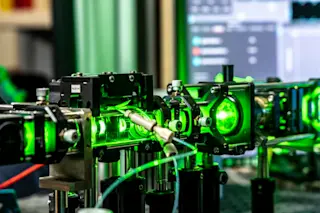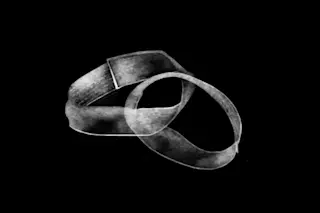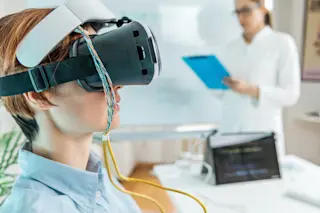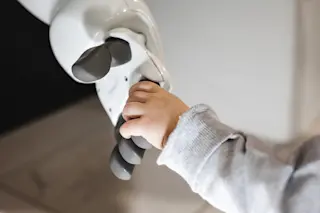More than 86 million Americans used a weight loss app in 2022. With an enormous variety of choices, there's an app for every type of consumer. Among the most common features found on these apps are diet plans, water consumption tracking, goal setting, fitness tracking, food diaries, recipes and a supportive environment.
Not all apps offer every option, which is why potential users should seek out the app best suited for them. With emerging evidence that these apps can be helpful, let's take a look at the science behind them.
Read More: Forget Dieting. Here’s What Really Works to Lose Weight
1. Behavior Modification
Cognitive behavioral therapy (CBT), which focuses on the relationship between thoughts and behaviors, can be an effective approach to losing weight. CBT has long been a part of traditional psychotherapy, and weight loss apps are getting in on the action. Some apps utilize core elements of CBT to aid users.
Including CBT principles in a weight loss app can benefit people interested in exploring and addressing the psychology behind their weight loss struggles. By examining and adjusting one's self-perception and eating habits, users can work on creating and implementing a positive relationship with food. Negative relationships with food and self-sabotaging can be addressed, and coping mechanisms to combat stress eating can be developed.
2. Community
A support system is a valuable tool for losing or maintaining weight. This is true whether or not an app is involved. While some people may choose to seek an in-person support group, weight loss apps can be an easily accessible source of community.
If you're someone who thrives with social engagement, look for an app with a large membership and digital community. This can include message boards and a robust social media presence. Using an app to connect with others with similar goals and struggles is a way to give and receive encouragement, practical tips, advice, and emotional support. With 41 percent of Americans classifying themselves as overweight, it's no surprise that people would find it motivating to connect with others in a similar situation. For many users, this component is an important aspect of their app choice and use.
3. Consistency
Consistency is an integral part of losing weight and keeping it off. Consistently choosing nutrient-dense, less processed, healthier food and drinking more water and fewer sugary drinks lead to weight loss. You don't need an app to be consistent in making healthier food choices, but an app can provide a convenient method to keep all your information stored in one place.
The ability to easily track, review and modify your eating (and exercise) habits can help people maintain consistency. It can be difficult and stressful to remember everything you ate over days, weeks and months. But a weight loss app will store all this information for you, taking the guesswork out of the equation.
Read More: What Factors Matter Most For Weight Loss?
4. Monitoring Food Intake
Monitoring food intake (calories, carbs, protein and nutrients) can be a useful weight-loss tool, and apps can assist in that process. Some apps require users to input their food info, while others are more technologically advanced with their food databases. Consumers can access information provided by the app based on the user's food/meals.
Other apps have barcode scanners that can be used to access helpful information about packaged food, including important nutritional info and warnings about negative aspects of a particular item. Not all app scanners are the same, so if this is an important feature to you, make sure any prospective app scanner has the capability to deliver the info you're seeking.
Before choosing a weight loss app, knowing your overall goals is beneficial. Not all weight loss apps are meant for everyone. Make sure you're choosing one that is good for your mental and physical health.
Read More: You May Be Eating More Than You Think — Here's How Food Journaling Can Help















